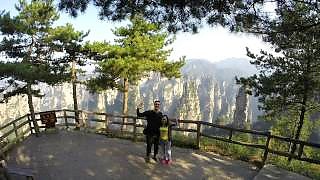
|
With Little Chinese Everywhere ...
Karakorum Highway & Tashkurgan Travel Guide
History
Attractions
Activities
Food
Transportation
Tips
History of the Karakorum Highway & Tashkurgan
The Karakorum Highway, often referred to as the Eighth Wonder of the World, is the highest paved international road, connecting China and Pakistan across the Karakoram mountain range. Its construction began in 1959 and was completed in 1979, symbolizing the strong friendship between China and Pakistan. Tashkurgan, located in Xinjiang, China, is an ancient town with a history that dates back over 2,000 years. It was an important stop on the ancient Silk Road and remains a cultural melting pot, inhabited by the Tajik people who have their own distinct customs and traditions.
Top Attractions on the Karakorum Highway & Tashkurgan
1. Khunjerab Pass
The Khunjerab Pass, at an elevation of 4,693 meters, is the highest paved border crossing in the world. It marks the border between China and Pakistan and offers breathtaking views of snow-capped peaks and pristine landscapes. The pass is part of the Khunjerab National Park, home to unique wildlife such as the snow leopard and Marco Polo sheep.
2. Tashkurgan Stone City
Located in the heart of Tashkurgan, the Stone City is an ancient fortress that dates back to the Han Dynasty. It offers panoramic views of the surrounding mountains and valleys. The ruins are a testament to the region’s strategic importance on the Silk Road and offer insights into the ancient trade routes.
3. Karakul Lake
Karakul Lake, situated on the Karakorum Highway, is a high-altitude lake at the base of Muztagh Ata, also known as the "Father of Ice Mountains." The crystal-clear blue waters reflect the towering snow-capped peaks, creating a stunning and serene landscape.
4. Taxkorgan Nature Reserve
This reserve covers a large area of the Pamir Plateau and is known for its diverse wildlife, including the rare Marco Polo sheep, ibex, and various bird species. The reserve’s rugged landscapes are ideal for trekking and wildlife photography.
Activities to Enjoy
1. Trekking and Hiking
The Karakorum Highway and Tashkurgan offer some of the best trekking and hiking opportunities in the world. Explore trails that lead through stunning mountain scenery, pastures, and along ancient Silk Road paths. Popular routes include hikes around Karakul Lake and up the slopes of Muztagh Ata.
2. Experiencing Tajik Culture
Tashkurgan is home to the Tajik ethnic group, known for their rich cultural traditions. Visitors can experience traditional Tajik music, dance, and hospitality. Don’t miss the chance to attend a local festival or visit a traditional Tajik yurt.
3. Wildlife Watching
The Khunjerab National Park and Taxkorgan Nature Reserve are prime locations for wildlife watching. Keep an eye out for the elusive snow leopard, golden eagle, and other unique species that inhabit this high-altitude region.
Local Food & Delicacies
1. Pilaf
Pilaf is a traditional dish in the region, made with rice, mutton, carrots, and various spices. It is a hearty and flavorful dish often served during festivals and family gatherings.
2. Naan
Naan, a type of flatbread, is a staple in the local diet. It is typically baked in a tandoor oven and served with various dips, meats, and vegetables. It's a perfect accompaniment to most meals.
3. Kebabs
Kebabs are popular in this region, with lamb and beef being the most common meats used. They are seasoned with local spices and grilled over an open flame, offering a delicious smoky flavor.
How to Get There
By Road
The Karakorum Highway is accessible by road from both the Chinese and Pakistani sides. From China, travelers can start from Kashgar, while from Pakistan, the journey begins in Islamabad, passing through Gilgit-Baltistan.
By Air
There are flights to Kashgar from major Chinese cities like Urumqi and Beijing. From Kashgar, travelers can take a bus or hire a car to Tashkurgan. For those coming from Pakistan, flights are available to Gilgit or Skardu, with further travel by road.
By Bus
Public and private bus services operate along the Karakorum Highway, providing affordable and scenic travel options. Buses are available from Kashgar to Tashkurgan, and from Islamabad to Gilgit and beyond in Pakistan.
Travel Tips for Karakorum Highway & Tashkurgan
Due to the high altitude, it is essential to acclimatize properly to avoid altitude sickness. Take it slow and stay hydrated.
Check the weather conditions and road status before traveling, as the Karakorum Highway can be affected by landslides and snow, especially during winter months.
Carry sufficient cash, as ATMs may not be available in remote areas. Credit cards are not widely accepted.
Respect local customs and traditions, particularly when visiting Tajik communities. Dress modestly and ask for permission before taking photos of people.
Ensure you have all necessary travel documents, including visas and permits, as this region is a sensitive border area with strict controls.
|

 ShuHe ancient town 束河古镇, YunNan province
ShuHe ancient town 束河古镇, YunNan province






